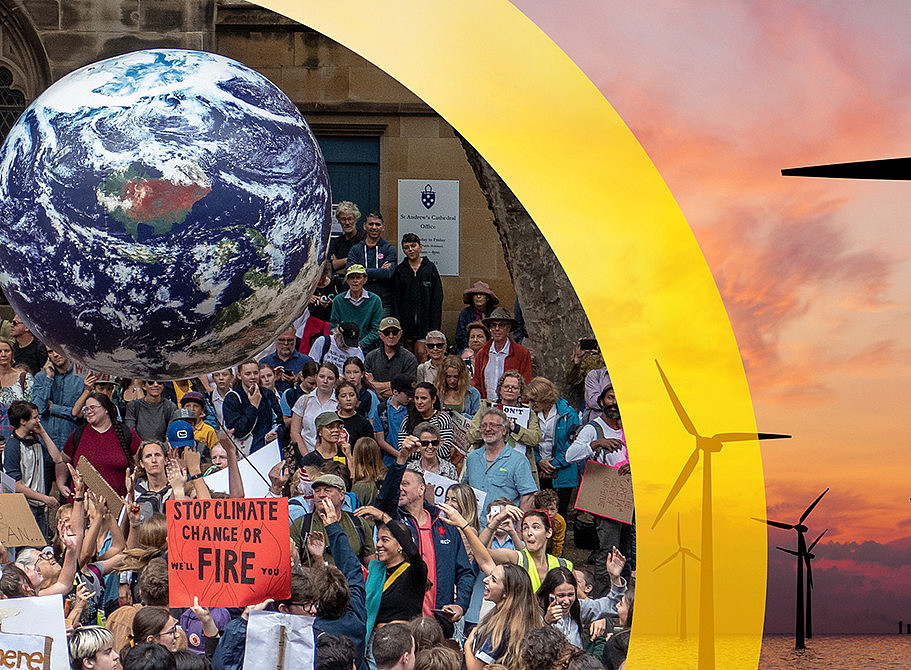The program is designed for PostDoc researchers (up to 6 years after receiving their PhD; applicants after their submission of their PhD thesis can be considered as well) from all academic fields working on climate change who wish to collaborate with one (or more) of the research groups of the Field of Excellence Climate Change Graz.
External candidates are strongly encouraged.
Dates for stays can start as early as June 2024 or latest in March 2025, but ideally run from October to December 2024, in order to encourage collaboration among the fellows. The fellowship will cover costs of travel, housing and subsistence up to € 8,000 in total.
Participants will work under the direct mentorship of an experienced Uni Graz scientist in a unique inter- and transdisciplinary research environment. The research stay should be focused on a specific project, e.g. a joint research program, paper, or grant proposal.
We are particularly interested in contributions to the following interdisciplinary research fields:
- Intertemporal Dimensions in Climate Litigation; see Research Group Research Center ClimLaw: Graz and the Climate and Environmental Ethics Research Field
- Participatory Action Research (PAR) for Sustainable Cities; see Research Group Health and Everyday Activities take Place (urban HEAP) and the Centre for Sustainable Social Transformation (RCE)
- Complex Systems Analysis of Environmental Inequalities, Social Tipping Dynamics and Rapid Social Change; see Research Group Social Complexity and System Transformation Research Group
- Interacting Organisms, Environments, and Societies: Interdisciplinary Approaches for Coping with Climate Risks; see Research Groups Functional Diversity and Ecology, Bee Biology and Behavior and Economics of Climate and Global Change
- Epistemology of Climate Models and Realistic Possibilities in Climate Risk Assessment; see Regional Climate Research Group and the Climate and Environmental Ethics Research Field
- Socio-hydrological Approaches to the Assessment of Climate Change Impacts on Water Resources, and Cryospheric Processes in the Arctic and High Mountain Areas under Climate Change; see Research Groups Groundwater and Climate Change and Climate Change in Mountain Regions
- Development of Soil Amendments to Support Carbon Management; see Research Group Functional Diversity and Ecology and Barta Group
- Interdisciplinary Approaches for Assessing the Fair Allocation of Benefits and Burdens of the Transformation to Climate Neutrality; see Research Group Economics of Climate and Global Change and the Climate and Environmental Ethics Research Field
- Developing the Energy Market to Expand Variable Renewables: Aspects of Economic and Legal Design; see Research Group Economics of Climate and Global Change and Research Center ClimLaw: Graz
- Challenges in the Decarbonization of the Mobility Sector; see Research Groups Sustainable Energy and Mobility Transition and Economics of Climate and Global Change
- Rapid Transition Pathways and Social Tipping Points, see Research Group Social Complexity and Systems Tranformation and Environmental Sociology
- The Interplay of Mitigation, Adaptation and Geoengineering: Questions of Governance, Strategy and Ethics, see Research Group Climate Economics and Public Goods and EconClim, and Research Area Earth Sciences and Climate
Applications process
Applicants are required to submit a 2-page research proposal for the work they intend to conduct during their fellowship. In addition, a short motivation letter (stating your preferred host and indication of interdisciplinary linkage you want to deepen) and a CV with a complete list of publications is required. Please provide contact information for three people that could give recommendations, but do not include reference letters in the application as these will not be considered.
Applications to the 2024 program are possible until 30th April 2024 by sending their application material to martina.rath(at)uni-graz.at (midnight CEST). Online interviews with the most suitable candidates will be held by an interdisciplinary selection committee in late April and beginning of May, so that the decision is available in mid May 2024.
